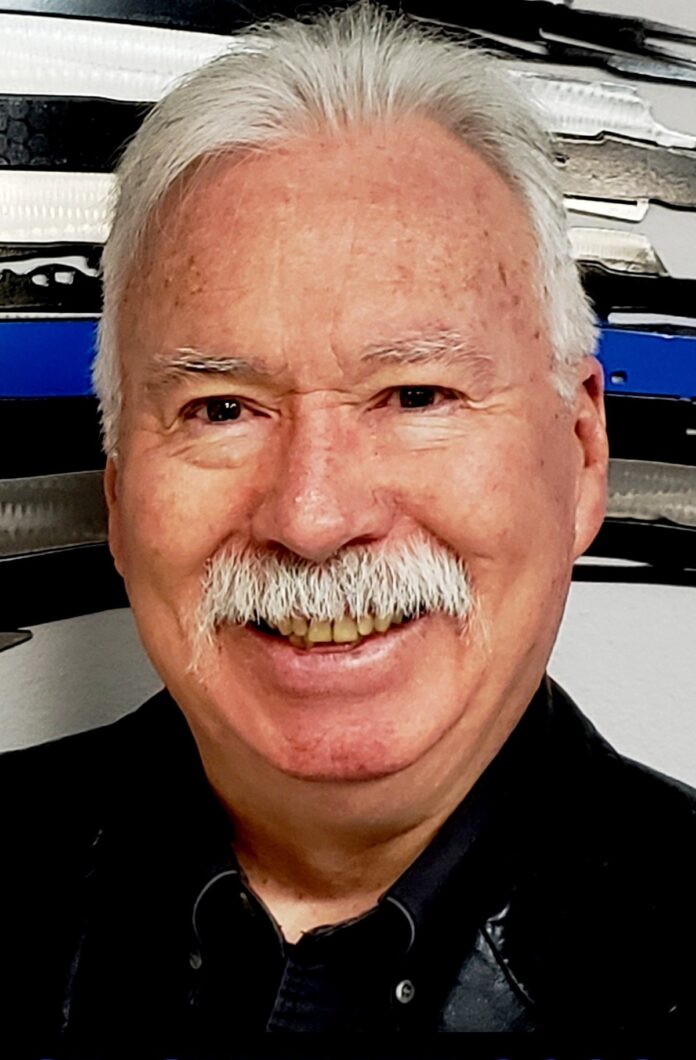Chuck Battle, 72, is running for Sheriff after a career in law enforcement. He served 14 years with San Diego Police Department, then 15 years with San Diego County Sheriff’s Department in Corrections, then Law Enforcement as a Deputy before retiring as a sergeant. He now heads Sting Productions Investigations, a defense investigation firm specializing in forensic examination of police reports.
Asked which leader he models himself after, Battle said he is a strong follower of Sun Tzu, the ancient Chinese military strategist and philosopher who wrote “The Art of War.”
“Law enforcement is all about being tactical: consider all the variables, make a decision, have a plan, use a process and stick to it,” Battle said.
His campaign is self-funded.
“The American people deserve to have a sheriff who hasn’t been funded by special interest groups which could potentially lead to extortion. Really, you shouldn’t have to earn a six figure income to run for office. Candidates have to spend $16,000 to get a $200 word blurb in the guide put out by the county Registrar of Voters. That’s $80 a word,” Battle said.
Battle’s impetus to campaign came from wanting to affect change and increase retention at the agency, a challenge he’d like to meet by establishing regular meetings between Sergeants to develop consistent processes.
“If you have a rapport with your troops, you’re the one who’s going to get the most out of them. I would have monthly meetings with deputy sheriffs to talk about what’s going on.
The way it is now at the sheriff’s department: twice a day they change out what they’re doing. One team does it one way and there’s no consistency between the two, much less between different patrol stations,” Battle said.
In “one fell swoop, one monthly Zoom meeting,” he said, Sergeants could learn what their colleagues are doing and create consistency, which he believes would prove beneficial as deputies interact with the community.
“All people know is a deputy uses excessive force and it’s negative. They don’t know that 99.9% of the time contacts end up being done exactly as they should be. If you want to address soaring violent crime rates, proactive policing is the only way,” Battle said.
He also believes emphasizing fair treatment would improve optics.
“If you treat people fairly— I don’t care whether you’re talking about the burglar on the street or the police officer charged with misconduct, it fosters a reaction that is more favorable than if you’re skewed in one direction or another. Know the law and follow due process,” Battle said.
He takes issue with a state audit which revealed San Diego County jails had one of the highest death rates in the state from 2006 through 2020. The report was “written to inflame, not to inform” he said, and the data was not presented with validity.
“It also implied San Diego County doing just the minimum was bad. But that’s what you do when you run jails: you do the minimum. Why would you do more than that?” Battle asked, when moving beyond minimum requirements would risk budget increases.
The first thing he would do before attempting to lower in-prison deaths is conduct an audit of each facility to see exactly what is needed to improve outcomes.
“I’ve been down this road before, when we hardened jails and know: you can’t just rely on an outside report. You have to
have an internal process,” Battle said, and be able to explain to the Board of Supervisors why more funding is needed before hiring additional medical personnel than minimally required.
For 50 years, he said, homelessness has been a county issue. The large majority of homeless residents he has encountered “don’t want to not be homeless” and return to the same place after being released from short-term care.
“It’s not illegal to be homeless. I’ve never understood as a police officer, how we’re going to go up to someone who is not breaking the law and accomplish anything. It’s a societal issue that needs to be managed in a different way than assigning it to law enforcement,” Battle said, although he does not believe the right facilities currently exist.
Just as he does not believe in assuming anyone is homeless, he believes law enforcement cannot assume anyone is living in the county illegally.
“It boils down to acting fair when contacting people,” Battle said, the same approach he would take to outreach groups like the Sheriff’s department LGBTQ+ advisory council.
People are more alike than they are different, he said and regardless of who someone is, where they came from, what their stance is on politics or their gender, a law enforcement officer should treat them with fairness.
“I think we need to treat everybody fairly and equitably under the law and in society,” Battle said.
Although he does not believe there is any way to prevent hate crimes from happening, he does believe people can be reeducated to treat each other with respect and fairness.
“The attitudes people hold today come from what they read, the movies they watch, the entertainment they seek out, the violence that has permeated video games. The last generation was exposed to programming which dehumanizes personal contact. You can’t play a first person shooter game 18 hours a day and not feel disconnected from reality,” Battle said.
Still, he believes limiting gun ownership would be an invalid approach.
“We need to hold people accountable who use guns in an unlawful manner. Murder is unlawful, so is assault with a deadly weapon- there isn’t any other law that needs to be in place. The person is the problem, not the object,” Battle said, and spoke in favor of streamlining concealed weapons permits as Sheriff.
Overall, the Sheriff has “an awesome power” compared even to the president of the United States, Battle said, “the last line of defense against federal and state overreach” and the last place to protect the people.
He has not held public office before and is not sure if he would run again.
“Well, I wasn’t planning on losing,” Battle said with a chuckle.














